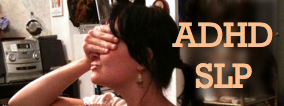More on this later, but I've come to learn, every. single. exam. period,
that it's necessary to be familiar with ALL the content.
Fo reals.
Class notes? Yup.
Readings? Check.
Is there a study guide? Practice it at least 2-3 times, and unless the teacher looks as though s/he has put a lot of thought into it, don't just depend on what's there.
Is your teacher offering a review session? GO.
Can you make an appointment for office hours? MAKE one.
In programs where your As are at 93% (like ahem cough mine), you may as well study to get 100%. That means knowing everything to the best of your ability.
And you know what? It's possible. You CAN do it.
And if As are what you need, whether it's for higher ed or for licensing exams, then go for them. You are investing the time anyway.
I am thinking that in addition to my daily calendar and agenda, it may also be a good idea to have a monthly calendar board on the wall with exam dates in the area you study (if that's your thing). That way, you can keep track of how far away exams and other assignments are relative to other things (oh, like you know, your life.)
Happy, confident, motivated examing, everybody. Don't give up.
Tuesday, March 18, 2014
Sunday, March 2, 2014
adhd study skills in review
Here is a roundup of what I've found helpful in 2013 with regard to study skills. I am only starting to scratch the surface at making a sleep routine (#6), but I'm beginning to see the profound effect a routine has on sleep. During the semester, I sleep with earplugs because 1) my walls are paper thin and I can hear my neighbor sleepwalking 2) I live near three hospitals, so I'm constantly hearing sirens. It's incredible that even now that I'm home, I can't sleep without earplugs. My ears literally throb until I use them, and I almost fall asleep immediately afterwards. Crazy!
Helpful Study Skills from the adhdSLP
1) Writing, NOT typing class notes: Someone special once told me that writing things out helps when you're trying to memorize. Writing and typing, I was told, use different parts of the brain. I will have to find an article on this, but I used to sit in class and frantically type out notes, and would listen back to class recordings and obsess about getting everything the prof said, which ended in dismal results. BUT, as soon as I printed the class slides and took up the suggestion to write, my grades soared.
2) Print out the class slides: If the prof provides slides for each class, ask the prof to make them available for the night before so you can print them out. Tell them it is extremely helpful to be able to organize your day, so you don't have to rush to print them out 10 minutes before class. It doesn't matter if they aren't quite done, or haven't been reviewed since last semester. You can always print the "good" copy later, and recopy the notes for extra practice.
3) Using different colours to write your notes: You deserve different coloured pens and pencils. You do. Because they help. Using different colours was suggested in my adhd assessment. Work out a system if you like--I don't have one--but you may find it helpful. Orange for titles, green for subheadings, blue for text. Whatever works.
I tend to prefer ballpoints since they don't bleed onto other pages. I have used these two brands:
Schneider Slider XB ViscoGlide (for medium point)
Foray(R) Advanced Ink Retractable Ballpoint Pens (for fine point)
I've linked here to Amazon just so you can see what they look like, but they're much cheaper at your local Office Depot or Staples. While I prefer fine point pens, I really appreciate the case that comes with the Schneider set of pens.
NB: Neither of them have a terribly decent green or orange pen, though: they're fluorescents that I've found hard to read. Will keep y'all posted if I find anything better.
4) Study from HARD COPY notes: You will get distracted with your computer open all the time.
5) Study in a well-lit area with lots of natural light, preferably: Natural light boosts performance. Read about it here.
6) A healthy sleep routine (ie, sleep early, get up early): It's not just about how much sleep. A sleep routine is essential. That means, doing the same things right before you go to sleep at around the same time every night (drinking your sleep tea (I use this: but always consult a doctor before taking anything. duh.), taking a bath, brushing your teeth, your nightime yoga, etc.)
Pick a time to stop studying, and then do your routine, and try to do that earlier than later. Say, at 9:30, drop your books, soak in your tub, and by the time you're done, you'll be sleepy-happy in bed by 10:00 pm. Avoid watching or reading anything that will get your adrenaline going or that will tempt you to stay awake.
Treat sleep as a holy, precious time for you to offer your body rest and time to regenerate itself. Did you know that the brain may wash itself of toxins while you sleep? Or that you consolidate info better over a good night's sleep? DAYUM! Gonna get me some decent sleep.
What do you find helps you study better?
Subscribe to:
Posts (Atom)
